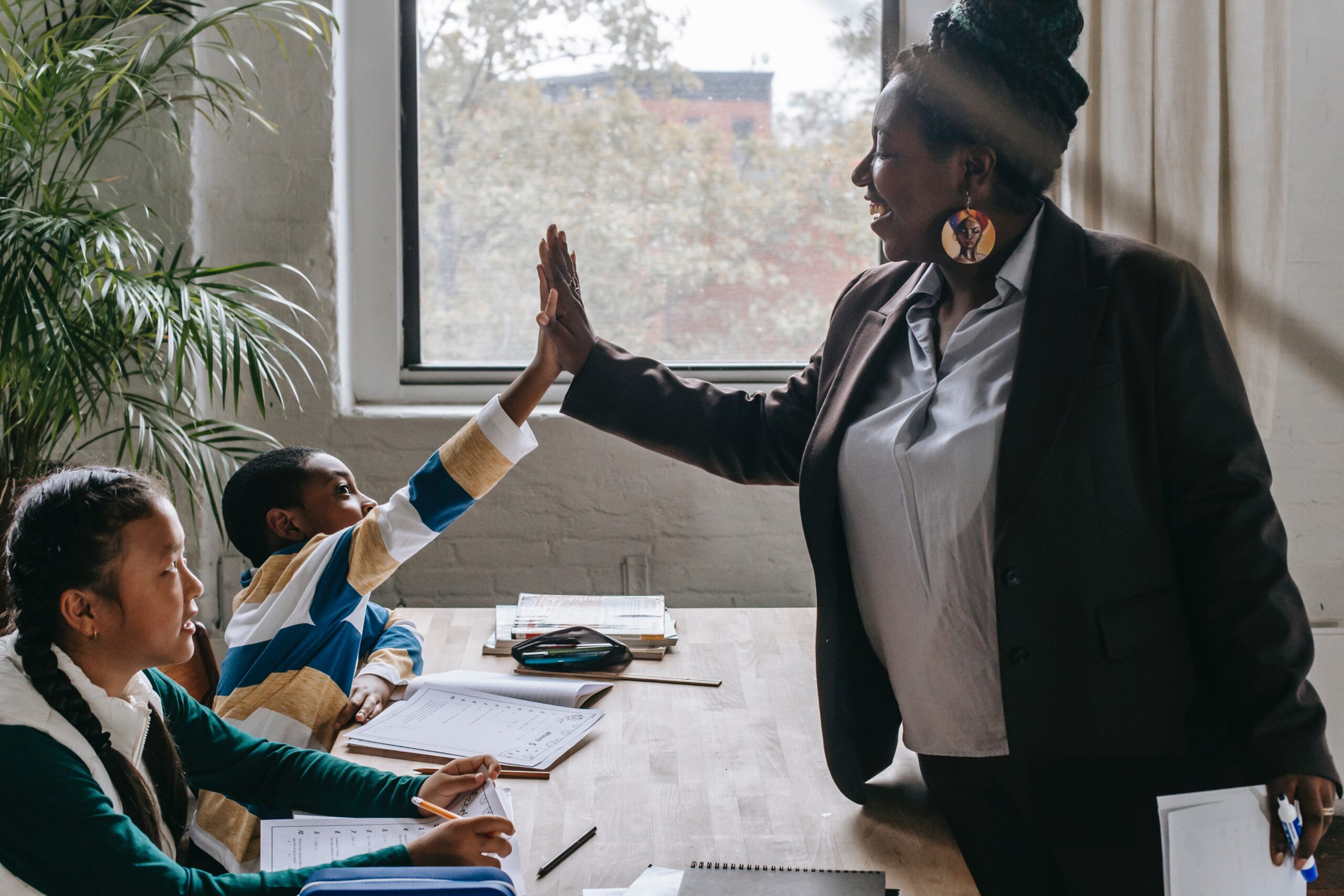We have to change the way we think about education. For schools to be places of learning, they must first be places of relationship.
An anxious brain can’t learn. The thinking brain (the prefrontal cortex) can only be ‘on’ when the whole brain feels safe: physically safe (free from hunger, pain, exhaustion, sensory overload/ underload) and relationally safe (seen, welcome, cared for, connected to).
Of course we want to support academic progression, but if we shortcut the opportunity or time for teachers to be able to build relational safety in the classroom, learning won’t happen. Without relational safety, there will be anxiety. It can be easy to overlook these kids or assume that they are giving everything they have to give, but too often, they will fall short of their potential.
Let’s not make the mistake of thinking we’ve seen everything these kids have to give or that we know what they’re capable of. They don’t even know what they’re capable of yet, but we know they can do hard things and surprising things – they just need to feel safe enough first. They need us to stay curious about their potential until they feel safe enough to let us uncover that potential.
Children can only learn when they feel relationally safe: when they feel cared for, connected to, and noticed by their teacher. When we talk about ‘safety’, we’re talking about what the brain perceives. Being safe doesn’t mean feeling safe. Children can have the world’s warmest, most loving teacher, and be a part of the safest, most caring school, but this doesn’t mean the brain will feel safe.
Relationships take time, and learning can’t happen without them. Yet, our teachers are under more pressure than ever (as are our children!) to show academic results. Some kids will excel no matter what’s happening in the room, but too many won’t. This isn’t because they aren’t capable, but because they don’t feel safe enough – yet.
Until children feel safe enough, we will only see the fringes of what they can do. We don’t need to change them – there is nothing wrong with them. What’s wrong is the world that thinks all children should feel safe with all adults, even ones they don’t know yet. This idea is ridiculous.
These kids don’t want to be ‘indulged’. They want to feel safe. We all need that, so we need to be kind to our teachers too. We need to give teachers more time and opportunity to build the relationships that let them do their jobs. Building relationships isn’t a distraction from teaching. It’s the vital foundation of teaching.
The teachers that get the importance of relationship are magic-makers – they change lives – but learning might take longer at first, while the relationship is building. When the relationship is there, these teachers have the most profound capacity to lead even the most anxious kids into learning, brave behaviour and discovering their rich potential.♥️



I took my daughter at age 6 to start a school and decided to pull her out within 2 weeks because of what you’re talking about above. I worked as a teacher before and my intention was to go back to teaching at the same time as my daughter started the school and I completely changed my mind. My daughter was very opposed to the idea from the beginning and regardless of the many times we visited the school ( it was about a half h drive) knowing that she had no idea how to get there in foot and back or the schools whereabouts in relation to our house was a big red flag. Then when we were in class ( I was allowed to sit in with her first week due to my strong request) she started asking questions like “ why do we need to sit for so long? Why is the door closed? Why can’t we go outside? So many questions and if allowed and if they could all kids have a right to ask. And if they can’t we should be their voice.
Those moments inside the classroom of a big conventional school we stuff our kids in made me question this system. I was able to sit there and look through the eyes of my child and eyes if the other children – many took turns sitting on my lap. I decided that I don’t like this system but had no idea about what other possibilities were there. During this time and research I learned about the term: “ Human-Scale”: “.. it deals with the belief that there is a proper scale that defines its limits by the well-being of both the person and the planet and the ability of the person to seek wholeness. “ Parks School UK
It deals with everything from the size of the school to hours, to flexibility of time and space. Relationships at the forefront. So I started on a journey to start such a “ human scale school “ where i live. They also call these schools “ Democratic free schools” I hope that I will be able to open the doors of this school soon and many more to come for all children who will benefit.
“ Human Scale asserts that community institutions should be created with the person at the center in a way that enables real and authentic relationships and connections between people” another quote from Parks school – a democratic school in the UK
Love this ! Can you please run for parliament .
This made me smile!